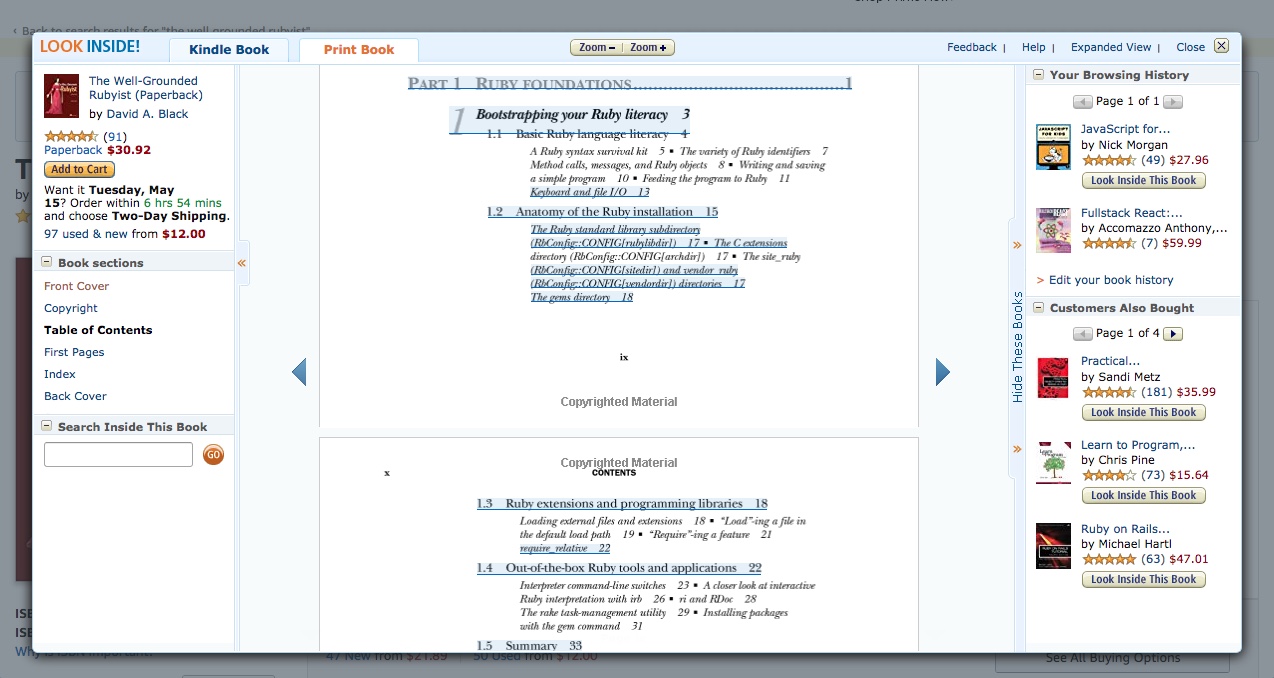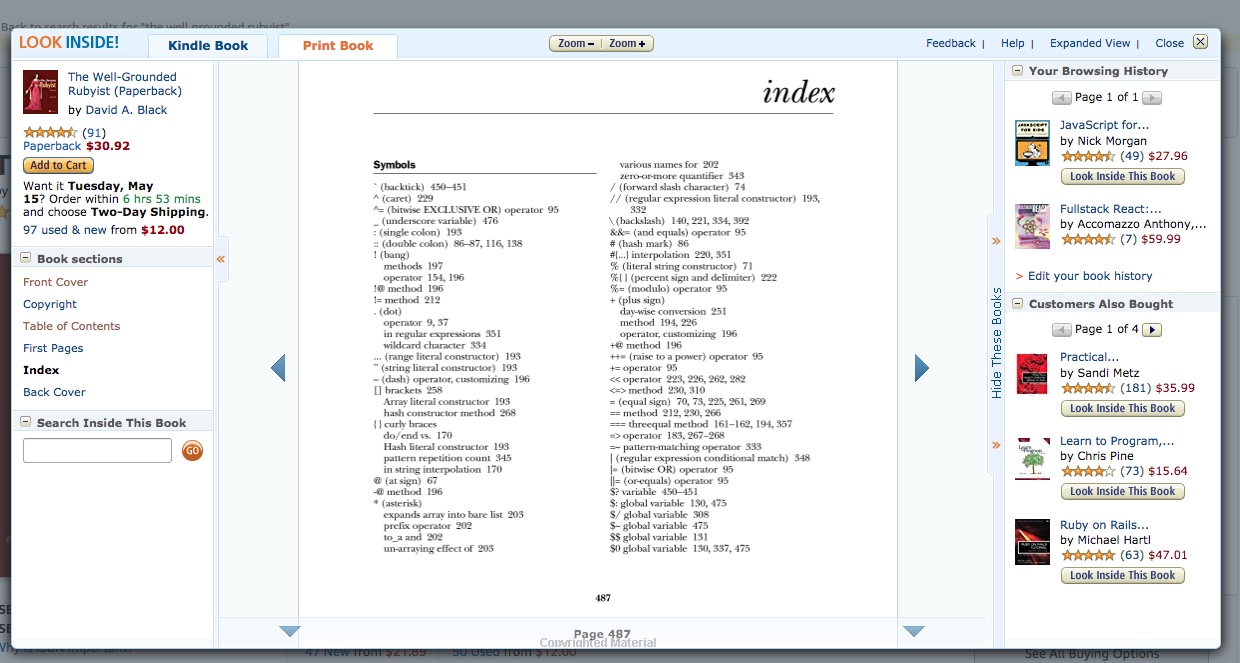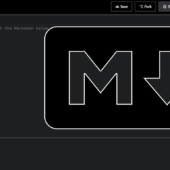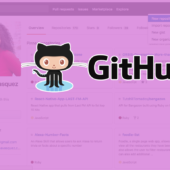5 Ways to Select Books to Learn Tech
Since I can remember, I have always loved books. I love the way they smell, how I can curl up with a cup of coffee on my favorite chaise in Jazz and read from cover to cover sometimes stopping to synthesize a concept and write my own ideas in the margin. This obsession with a writer’s ability to express themselves in their own unique voice has always captivated me. It would stand to reason that since I learn from books in a way that brings me closer to the content that when I decided to fully engulf myself in software development I would begin a quest to find and read every book that could bring me closer to understanding this new world.
Often I am picked on by other devs for the size of my books and the fact that I would spend money on a tech book that was outdated before it even went to print. I've even been told by an "expert" that learning from books is the worst way to learn...I nod my head and resume my consumption of the theories and structure provided by my “big books” because I know a secret about technical books...all of which I will share with you in this post.
Whether you consider yourself an avid reader, like me, or you hate to learn things from a book, there is value in specific parts of books that most learners fail to realize. I mean...you would never not read a history book because it shared “old news,” so why would we discount books in our quest to learn tech? More often than not, my peers were blown away by how fast I learned concepts, was able to create software that used these concepts, and was able to carry on complex conversations and ask valuable questions with devs that were light years ahead of me. How is that so? Books!
Now, that is my explanation for WHY I use books every day. Let me explain to you the HOW in 5 ways to select books to augment tech learning so that you can begin to understand the value of books and how spending money and time reviewing them can help catapult your learning in very beneficial ways.
Here are 5 things to look for when selecting a tech book to help you learn:
1. The author (and the Editor) is a subject matter expert
All books are not created equally. This is especially true in tech. Most of the technical books I’ve researched are written by great software engineers in their own right, but they can’t see the forest for the trees. In other words, they may be a rockstar dev, but suck at teaching. This is where great editors can come in and fix it all up and make it easier for the reader to understand the concepts being discussed.
So, how do you know if the author is both a beast at software development and either a good teacher or have great teaching editors? The answer to this isn’t as complex as you would think.
- Check to see if the author has a blog. If so, do you get lost in their articles or are they easy to read and execute?
- Check the publishing company of the books you would like to use -- What is their specialty? Do they publish educational books? Is this their only focus? (O’Reilly, Addison-Wesley, Pearson, etc.)
- Check the reviews on the book -- I always start with the bad reviews and look for themes in those reviews that target the relevance of the content, not their own subjective thoughts on the book.
- Check the date the book was published -- nothing can be more frustrating than finding what seems to be the perfect book only to find out that it was published 5 years ago. In tech, that may as well be 1000 years! While you’re checking the reviews for content, also check if the reviews say the concepts are outdated as in there has been a huge update to the version of the tech you’re studying. That doesn’t mean you shouldn’t buy the book. It just means that you likely will be using the book for a different purpose than learning how to create a project using it. This would classify as a “historical book” in the tech and is still valuable to your learning.
As a side note, just because a book isn’t published by an educational editor doesn’t mean that it won’t meet your needs. Some of the best books I have found for specific subjects are self-published by the author too! You will just need to check for some of the other things I look for in books before purchasing them.
If the author is a subject matter expert (SME) and the editor/publishing company specializes in educational books, you may have yourself a winner and that winner will help guide you through the next ways I give for how to select books to learn tech.
2. The Table of Contents (TOC)

Once I have found an author who is reliable in their expertise and check out the books they have published, I look at the table of contents because this tells me a lot about what the book is about and how my learning will take place.
It is possible to stop here. Usually the TOC will hold all of the goodies needed to help you know WHAT you need to learn as it relates to a tech topic. I don’t stop here because usually I use books to learn techs with which I am unfamiliar, so there are a few other elements of the books I check to ensure it will be a good fit.
A well-written TOC can tell you what to google and in what order you should learn the new tech. This is huge if you are new to the tech or know a good bit, but want to fill in the missing holes of your knowledge. This is where any “historical tech” book holds value. The way to go about using the tech may not be the same, but unless the new version is completely different than the last version, the TOC can still provide some valuable insight on how to use the tech.
I usually check out the TOC on amazon.com for free so that I can see how the author plans on introducing concepts and the terms and how they will break each concept down to guide me through the learning process. This is very valuable information.
3. The Index

The index is like a glossary of sorts, but it doesn’t necessarily provide you the definition of a term within the index, it goes a bit deeper than that. Usually, the first listing and page number of the term in the index is where you will find the definition of the term in context within the book.
After the first listing, the index then gives you a reference to other uses of the term you're looking for by page number to each time the term or concept was used in the book. This is HUGE in learning something new.
Once you have finished the book or know enough to move on, a book with a great index can serve as a valuable reference for you. A great tech book without an index is like a document with the find tool disabled. There is no way I would ever purchase a tech book without an index UNLESS it breaks down the concepts in the TOC, which is very rare.
4. Code Samples
I really think this goes without saying. Usually great education books will either come with a link to download code, or a github repo link. Books that only have code samples inside the book are problematic because they require the reader to either do more work, which can take away from learning by frustrating the learner, or the samples are just snippets that don’t give context to the concept.
I avoid tech books that require a coding element for learning, but do not provide an external resource for code samples.
The quality of the code samples are equally as important as well. Great tech books that provide code samples don't provide a chunk of code and expect you to find the lines and order it is being referenced in the book. Good code samples require that the reader do a little work, but work that is purposeful in learning the tech.
A good code sample will have the book's referenced code samples in files, which a user can either review, copy/paste, or type (which is the best way to learn) into a blank master file that when completed is the entire app or concept. Good samples will also have comments throughout the code base that are meant to teach the reader how the code should be implemented.
5. PDF Version
While I am a sucker for printed books, I have grown attached to tech books that also come with a PDF version. While this isn’t a deal breaker for me, if I am on the fence on a book, getting the PDF version may tilt my decision in its favor.
An example of this is I needed to get a deeper understanding of ReactJS to help teach a group of students and the one book that I really wanted did not have an index! It discouraged me because the book was over 200 pages long and the TOC made it seem like it was the perfect choice. The authors were super at teaching and even made contributions to the tech, but without an index, how could I find specific things I needed to reference quickly? What tilted my decision was that it came with a PDF version, which I could search! The digital version also included updates made to the book for a year so it was a win-win!
So while I would usually avoid books without an index, having a PDF version really takes care of a portion of the benefit of having an index.
Conclusion
I hope this post was able to give you the information you need in order to find great books! I use books daily and I also use books to start conversations with other devs. If I have information that could help them on their path to learning, I can share the book with them or give them a copy. Either way books help to bring us together and can help you start really good conversations that lead to growth and a sense of empowerment of your learning.
Happy reading!
Dr. T





